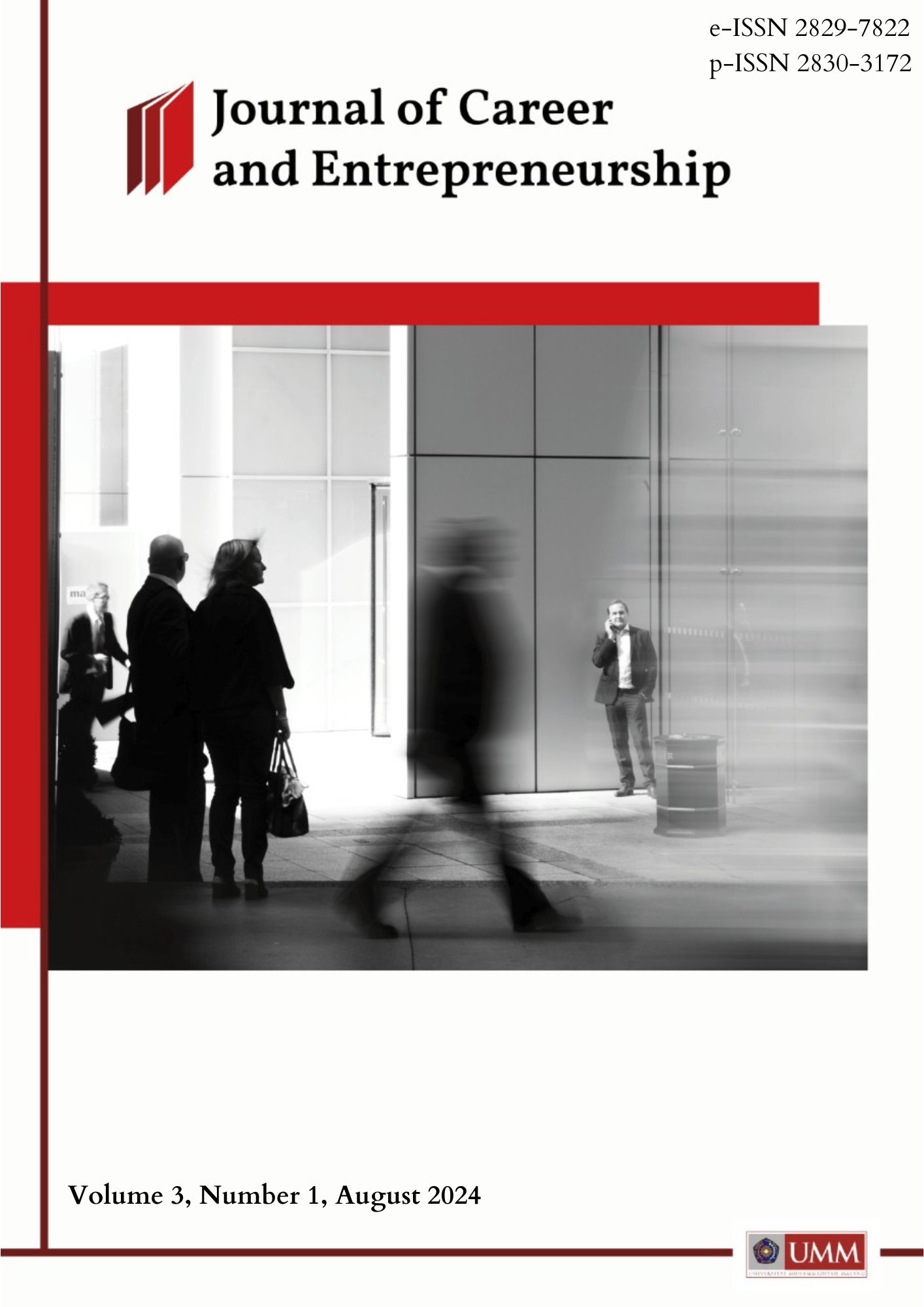Positive and Negative of Gen Z perception on politicians in Indonesia
DOI:
https://doi.org/10.22219/jce.v3i1.35329Abstract
The research aims to determine the positive and negative perceptions of Gen Z towards politicians in Indonesia in the mass media or person. The research was conducted on Gen Z aged 17 to 27 at this time, the research sample took the smallest sample, namely 100 respondents. Data analysis was carried out using a qualitative method with stages of determining positive and negative variables, grouping variables and testing again. The assessment uses a range of scales. As a result, Gen Z states that politicians have not fulfilled and violated the requirements they must have as a politician.
Downloads

Downloads
Published
How to Cite
Issue
Section
License
Copyright (c) 2024 Armani, Fadil Inayatullah

This work is licensed under a Creative Commons Attribution-ShareAlike 4.0 International License.
Authors who publish with Journal of Career and entrepreneurship (JCE) agree to the following terms:
- For all articles published in Journal of Career and entrepreneurship (JCE), copyright is retained by the authors. Authors give permission to the publisher to announce the work with conditions. When the manuscript is accepted for publication, the authors agree to automatic transfer of the publishing right to the publisher.
- Authors retain copyright and grant the journal right of first publication with the work simultaneously licensed under a Creative Commons Attribution-ShareAlike 4.0 International License that allows others to share the work with an acknowledgment of the work's authorship and initial publication in this journal.
- Authors are able to enter into separate, additional contractual arrangements for the non-exclusive distribution of the journal's published version of the work (e.g., post it to an institutional repository or publish it in a book), with an acknowledgment of its initial publication in this journal.
- Authors are permitted and encouraged to post their work online (e.g., in institutional repositories or on their website) prior to and during the submission process, as it can lead to productive exchanges, as well as earlier and greater citation of published wor (See The Effect of Open Access).
This work is licensed under a Creative Commons Attribution-ShareAlike 4.0 International License.





